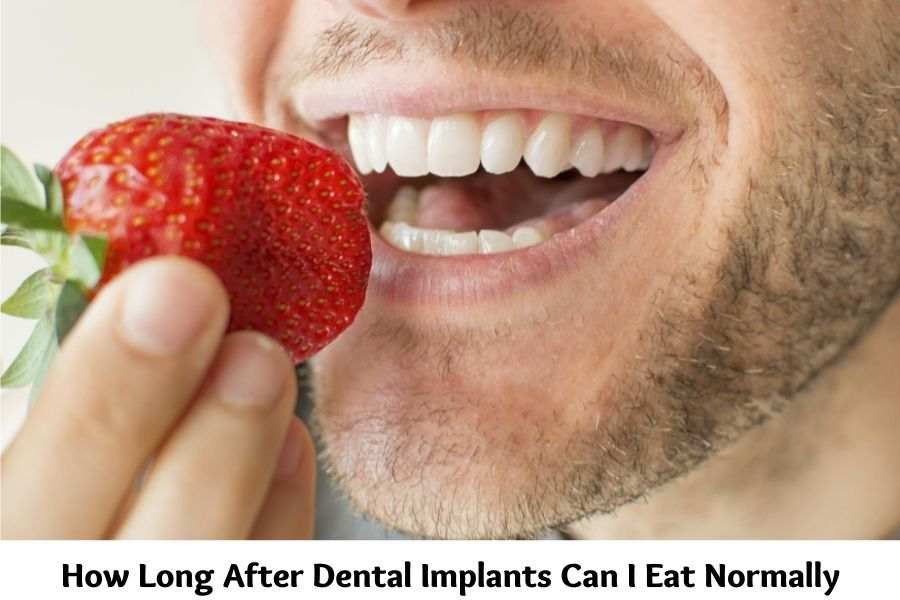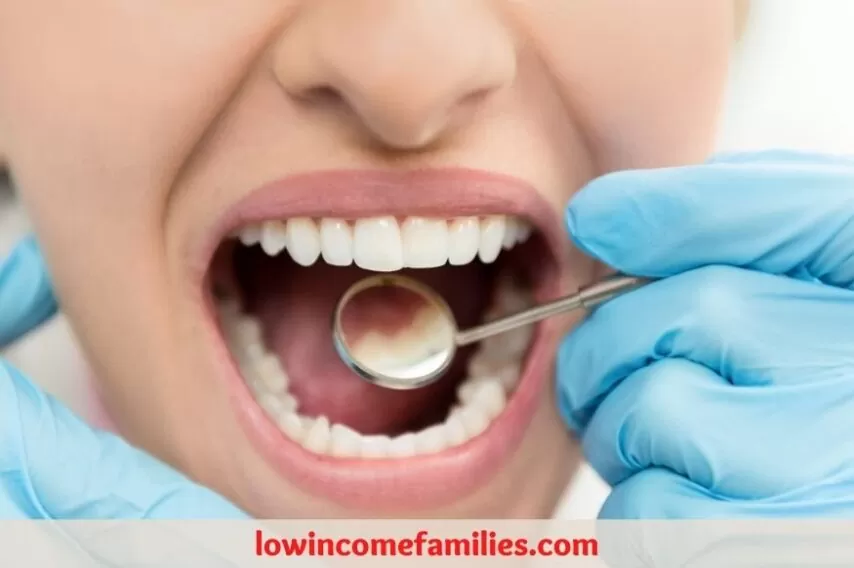A dental implant is a prosthesis device that is used to correct dental defects such as serious decay, periodontal disease, facial traumas, and so on. Implants are among contemporary dentistry’s most remarkable breakthroughs, having improved the smiles, eating habits, and communication of millions of individuals.
The entire process of choosing a dental plant might take months and include several visits, diagnostic tests, and operations. Even though implant placement surgery is a common treatment, there will still be some post-operative care required, especially when it comes to eating.
About a week following your implant placement surgery, you will be likely to feed normally again, and the transition should be smooth and painless.
What Occurs Following A Dental Implant Procedure During The First 12 Hours?
For several hours following the operation, the region where visitors received their implant will be numb. For the very first six hours following the procedure, eat soft foods only. If you want to avoid anything abrasive, soft meals like applesauce, yogurt, and smoothies might help.
Make sure you are not eating anything with peanuts, nuts, or anything that feels substantial. It is also a good idea to bite away from the implant location to relieve tension in that area.
After the first six hours, you can start eating some hard yet solid meals. Pasta, sautéed veggies, and eggs are some of the foods you can consume. Also, if you are wondering about how to get dental work done if you have no money, click to know more!
Crunchy Foods Should Be Avoided
You should avoid doing anything that might harm your implant over the following few months. Nuts, for example, but also fruits like apples and fresh crisp vegetables fall within this category. They will be able to inform you how the osseointegration process is progressing during your regular dental checkups at a dental clinic near you.

Stick to eating softer foods to encourage successful fusing, but your diet does not have to be as restrictive as this was the first week between getting the implant.
Muffins, spaghetti, omelets, mousse, milkshakes, oats, melons, beans, eggplant, smooth French toast, salsa, and more are some of the items you may incorporate.
Check Also: How To Get Dental Implants Covered By Insurance 2024?
An Introductory Liquid Diet Is Recommended
It should only be essential to follow the liquid diet for 24 hours. This is to protect the region where the part of the structure was placed from injury. This region will be bloated, and there may be some minor but usual bleeding. As a result, you will want to keep to a liquid diet after receiving dental implants near you.
It is indeed critical not to use a straw in this situation. The sucking action associated with using a straw creates pressure within your mouth, which can be painful and impede the process. Also, stay away from anything with seed, including strawberry juice, and anything that is excessively hot.
What Foods Am I Allowed To Consume During The First Week Following Dental Implant Surgery?
After the first 12 hours, you can resume your usual diet, but you should proceed with caution.
- During the period, you can safely eat the following foods:
- Eggs, poultry, fish, or ground beef are all good sources of protein, particularly if they have been cooked and not solid.
- Potato, oats, and bananas are all good sources of carbs.
- Drink plenty of water during the day to stay hydrated.
- Avoid skipping meals since the mending process will be sped up if you eat regularly. You can even begin eating around the implantation surface, but be careful not to chew too hard there.
What Meals Should I Avoid During The First Week Following Getting Dental Implants?
Doctors want to make sure you are taking your recuperation seriously. Avoid the following meals for the first week following surgery :-
- While drinking, avoid using straws.
- Carbonated beverages should be avoided since they are corrosive and may affect the implant. Avoid foods that are crunchy, sticky, or abrasive since they might damage the implant. Nuts, crackers, and other crunchy foods are examples.
- Acidic foods like tomatoes and oranges may wreak havoc on the environment.
- Foods that are hot or spicy might irritate the stomach. Consume no hot soup, espresso, tea, or spicy peppers of any kind.
After The First Week Of Implant, What Happens?
Within the initial week following the procedure, you will be able to eat normally. You will get the aid you need because of the time. However, keep an eye on how the region around your implant reacts to your usual diet. The swelling and bleeding should stop, but keep an eye on the region and contact doctors if anyone has any concerns.
Conclusion :
Dental implants can help you regain your smile and improve your self-esteem. Dental implant success rates vary depending on where the implants are put in the jaw, but on average, dental work has a survival rate of up to 98 percent.
Implants could last a lifetime if properly cared for (see below). Dental implants have the appearance and feel of natural teeth. They are also permanent since they are engineered to merge with bone.
Here is the best and the worst food list after dental surgery, what dentists recommended, you must read.
Frequently Asked Questions
How long does it take for dental implants to heal?
The dental implant healing period is a complicated procedure that varies greatly from person to person. Please review the elements that impact the recovery duration of dental implants listed below.
What are the benefits of dental implants?
Few things are more vital than maintaining a good set of teeth. Although we only receive a single set of permanent teeth, there is always hope if guys have lost a tooth or have major damage to their teeth.
Why cannot one have a dairy after a dental implant?
Milk and yogurt, for example, can promote inflammation in the gums, causing severe damage to the teeth and gums. It is also known to cause nausea, so it is better to stay away from it.
How soon after dental implants can you eat?
Once the dental implants have been installed, you can eat right away. However, you should expect your gums to be sore and inflamed for several days following your procedure. As a result, you should only eat soft foods or drink liquids after your treatment.












